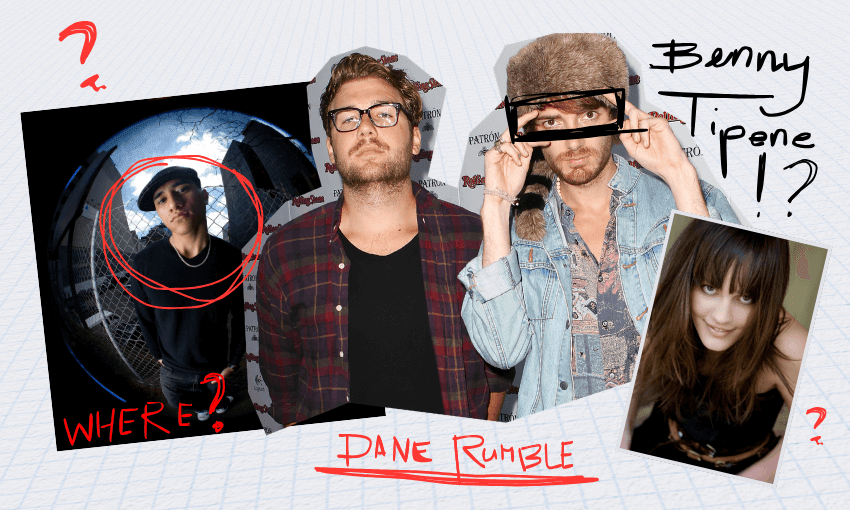The business of news is as dirty as the ink its printed in – or at least that’s what Press thinks. Sam Brooks reviews the news drama from the BBC, which drops on Lightbox today.
There are no heroes in Press. Whether you’re Holly Evans (Charlotte Riley), the righteous news editor for the Herald, who chases up corporate cover-ups and irregular statistics like a modern-day crusader, or you’re Duncan Allen (Ben Chaplin), the editor-in-chief of the Post, who is chasing any tawdry scandal for his front page – they’re the same animals dressed in different colours. The only hero in news is the truth, and Press spends its thrilling six episodes run assailing that idea from every possible angle.
From the first episode, Press draws some simple and clear battle lines. The Herald, which is not-so-loosely based on the Guardian, is the bastion of journalistic integrity in Great Britain: they do the stories that matter, they’ve been around for a long time, and they don’t stoop to be in the muck. They’re blue. On the other side, we’ve got the Post, which is even-less-loosely based on the Sun, so pure tabloid celebrity garbage. They’re red. There’s hard-hitting news, and there’s soft news; the yin to the yang.
Although Holly and Duncan are focal points of the story, Press spreads itself across a few characters in order to paint its full picture. There’s the editor-in-chief of the Herald, Amina (Priyanga Burford, exquisitely memorable in her one episode as Baroness Sureka in The Thick of It) who has a strong head for the legacy of her paper, while realising that commercial compromises need to be made to continue that legacy at all; the prospect of a wraparound, a company buying the front page and back page, is treated in this show like nuclear war might be in Homeland.
On the other side, there’s the Oxford graduate Ed Washburn (Paapa Essiedu) who has stooped to taking a role at the Post and immediately finds himself doing his first death-knock, that is, door-knocking a grieving family to get their side of the story. Ed serves as the audience’s primary moral compass and entry-point into the world of the media; we’re constantly seeing the compromises he is being asked to make, and being asked to make without directing a second thought towards the morality. He’s in this business, he’s there to get to the truth. Nothing else should matter, right?
If Press were going to take sides, it’d be easy for it to take the side of the Herald, the kind who are exposing hospital mismanagement and police cover-ups, but the show doesn’t make it that easy. By showing the audience the compromises that the Herald has to make just to survive, and not even particularly thrive, Press sets up the concept that news is something where the only victory is one that comes in spite of something else. Take the character of James (Al Weaver), an investigative reporter for the Herald. His investigations into a few clothing companies reveal, perhaps not surprisingly, unethical practices, and one of those clothing companies just happens to have signed a contract for a dreaded wraparound the following Monday. The choice is made to go with James’ story, but the price is very clear: get the truth and risk the safety, or get safety and risk the only thing that people want from you. Press takes these fairly heady, arbitrary concepts and places them into the hands and minds of humans, effectively and immediately.
If this sounds misanthropic, that might be because it comes from the mind of Mike Bartlett. He’s most familiar to me from his stage work – namely the pre-apocalyptic Earthquakes in London – but his television work is no less acclaimed, particularly the Medea-esque Doctor Foster and his Shakespearean foretelling of the future in King Charles III. Misanthropy might be an unkind label for Bartlett, who has spent much of his career sketching portraits of the conscious brutality that humans are capable of every day, but it’s not an inaccurate one.
If anything, his misanthropy feels better-suited to the world of the news. His target isn’t humanity in general, but the concept of truth, and these particular human’s pursuit of it. Duncan is a philanderer, a bully, and honestly just kind of a dick, so even while he’s preaching the importance and the value of journalism, do we really trust him and does it really matter that he’s fighting to get to the truth? Similarly, does Holly’s dogged and seemingly single-minded pursuit of a new, important story every day mean anything if she feels hollow inside? These are the other questions that Press, and Bartlett, investigate throughout its six episodes and do so without pulling any punches.
Above all, there’s the unmistakeable BBC sheen of competence and quality layered over Press that make it a thoughtful thrilling watch, and a surprising one at that. What better way to start your 2019 off than with questions about the media you consume every day and the cost of making it, not just on the people who it’s about, but the people who make it?
You can watch all six episodes of Press on Lightbox right here.



